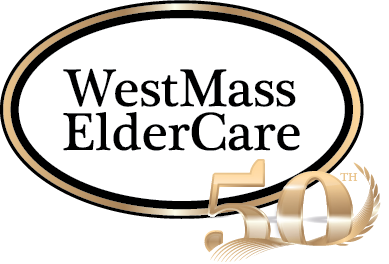
As the Program Director for WMEC’s Nutrition Services, Lisa Lovell makes it her mission to supply elders with the support, resources, and connections they need to stay healthy and active. From preventing isolation to providing nutritional counseling, the Nutrition Services Program has many resources.
“Our main goal is to provide nutritious meals to elders in the community. We look at their overall well-being and health so they can remain in their homes for as long as possible,” Lovell explained.
In our featured interview this month, Lovell dives deeper into the importance of providing nutrition services to seniors, the value of the Latino Restaurant Elder Dining Services Program, and how WestMass Eldercare will continue to support the Latino community with exciting upcoming changes to the program.
Exploring The Nutrition Services Program
 The WMEC Nutrition Services Program offers a variety of meal choices which cater to the diverse needs of our consumers. Whether it’s a daily delivery or an as-needed service, home-delivered meals help meet consumers’ unique nutritional needs and may include lunch, dinner, and weekend meals. We also offer a Latino menu option, as well as medically-tailored meals including pureed, cardiac, renal, and other specialized alternatives for participants with diets specific to their health-related needs. Elders can sign up for home-delivered meals or congregate dining at one of our Community Table programs hosted at local senior centers or housing sites.
The WMEC Nutrition Services Program offers a variety of meal choices which cater to the diverse needs of our consumers. Whether it’s a daily delivery or an as-needed service, home-delivered meals help meet consumers’ unique nutritional needs and may include lunch, dinner, and weekend meals. We also offer a Latino menu option, as well as medically-tailored meals including pureed, cardiac, renal, and other specialized alternatives for participants with diets specific to their health-related needs. Elders can sign up for home-delivered meals or congregate dining at one of our Community Table programs hosted at local senior centers or housing sites.
Beyond the meals, Lovell explained that these services can help prevent isolation by creating socialization opportunities. She explained that WMEC’s home-delivered food program is often the only point of contact for older adults who may not have family or friends checking in on them regularly.
The Nutrition Services Program also provides one-on-one nutritional well-being and counseling services overseen by a registered dietician. These services, open to individuals receiving home-delivered and Community Table meals, also provide another opportunity for check-ins.
“If someone does not show up at a meal site regularly or if they don’t show when we’re expecting them, we make it a point to follow-up,” she said.
The Story of Latino Elder Dining Services
Reflecting on Latino Heritage Month, Lovell shared how the Latino Elder Dining Services first began in 2007. After learning of restaurant-style congregate dining for elders at a conference, WMEC was awarded a grant from the Altria Company Corporation in 2008 to establish a Latino Family Restaurant Program. This, she said, was how WMEC’s partnership with the Fernandez Family Restaurant began.
“We put out a request for proposals, and Fernandez Family Restaurant was the only restaurant to apply for the program,” Lovell said. Throughout their 14-year partnership with the Fernandez Family, she explained they were able to provide 800 individuals with more than 120,000 meals. The collaboration also helped WMEC reach new older adults within the Latino community. This, she said, was largely due to the Fernandez Family’s care and passion for the community
“The Fernandez Family was wonderful about making referrals to us, so that older adults’ needs would be met. When a member of our outreach staff came down to register a new participant, Fernandez would lend support in providing a meal to them,” Lovell shared.
She explained the pandemic created a barrier to the program as restaurants had shut down. However, WMEC was able to continue offering authentic Latino meals during COVID through its home-delivered meal program and takeout meals from the Fernandez Family Restaurant.
In July of this year, the Fernandez Family made the bittersweet decision to close the restaurant. However, WMEC was able to continue supporting members of the Latino community by offering home-delivered Latino meals. She explained that while not all participants of the program chose to receive the home-delivered meals, they asked to be put on a list and be notified when a new partner site for the program was chosen.
Lovell explained that WMEC’s efforts to further expand its outreach to the Latino community, including the Latino Restaurant Dining Service Program, stem from a desire to meet the growing community’s needs.
“WMEC has a growing number of bilingual and bicultural staff. I have three outreach workers for this program that are bilingual and bicultural, and they will be spending time at the restaurant doing the registrations,” she explained. “Our hope is when we go out and do the registration and outreach, we will also have the opportunity to serve Latino elders who may need additional services.”
What’s Next?
Lovell shared that WMEC’s Latino Restaurant Elder Dining service would soon reopen later this fall through a partnership with the Taino Restaurant on South Street in Holyoke, and will feature a new menu and registration process. She emphasized that the program would require all those participating to reregister. “We are so excited to partner with Taino Restaurant to bring our Latino Dining Service program service to more members of our community,” said Lovell.
Learn more about our Nutrition Program and stay tuned to updates about our Latino Restaurant Elder Dining Service here!


